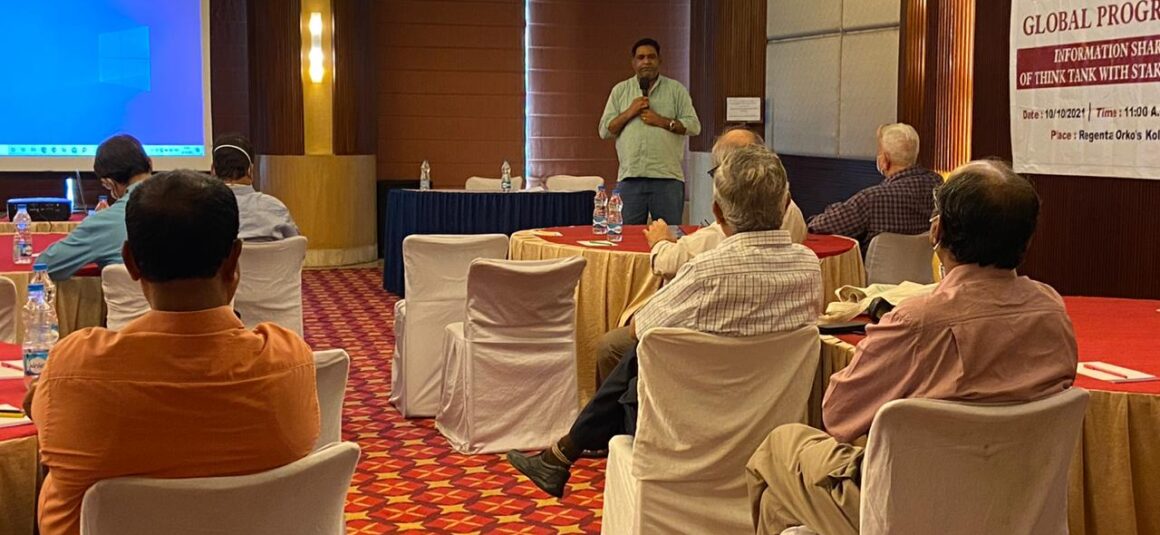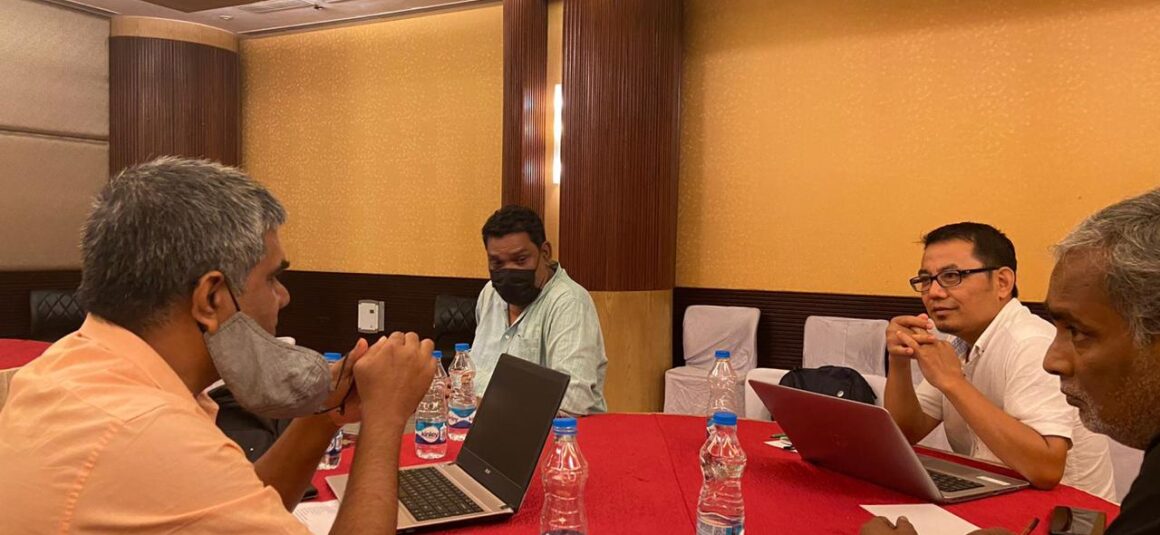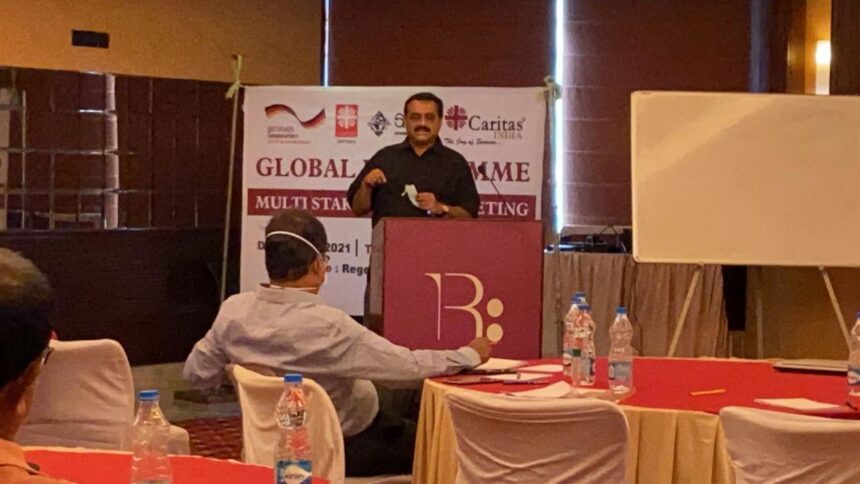Think tank experts at multi-stakeholder meeting explored different ways to strengthen better coordination and collaboration at Sundarbans for building resilience in the community. Calcutta Society for Professional Action in Development (SPADE) with support from Caritas India, organized a multi stakeholders & meeting on 10th October 2021 at Kolkata under the Global Program India to promote synergies and share good practices.
“The Global program India will contribute towards achieving SDG 2: achieving Zero Hunger, SDG 10: Reduced Inequalities and SDG 13: Climate Action,” shared Mr. Subhashish Debnath, SPADE Project Coordinator for the Global Program. He informed that the program intervention focuses on Poverty Reduction, Food Security, Promoting Social Inclusion of Particularly Marginalised Groups and Increasing Resilience to Disasters in High- Risk Areas.

Mr. Anjan Bag, Thematic Manager – Disaster Risk Reduction, Caritas India gave an overview of the Global Program India its relevance and its need raised from the preliminary comprehensive research undertaken by the expert while accessing the vulnerability of the states in India. As per the findings the four states (Assam, Bihar, Odisha and West Bengal) were selected for the intervention.
Presenting the situation of Sundarbans, Mr Dibyendu Sarkar (Retd IAS), Advisor Environment Department, GoWB discussed about the methodology and progress so far made in the process of preparing a status report on the problems of Sundarban region regarding climate change disaster preparedness and economic and ecological perspectives.

Mr Rajib Kumar Ghosh, Project Director and Member Secretary Sundarban Development Board, Government of West Bengal, Mr Jayanta Chakraborty (SDDMO, Diamond Harbour subdivision, south 24 Parganas district), Mr Anurag Danda (Director WWF), Mr Joachim Campou (World vision), Mr Laurent Fournier (Architect), Prof Mousumi Kundu (Techno College of technology), Md Abdul Gani (Ex-Special secretary of department of Sundarban Affairs, Government of West Bengal) and Mr Tarun Kumar Debnath, Senior Advisor WBSRLM enriched the entire program through pointing out various aspects of overall development, climate change disaster management, life and livelihood, trafficking and migration of the Sundarban communities.
Major takeaways of the program pertaining to future initiatives include incorporating disaster management in school education curriculum, analysing Sundarban issues in the light of Geo climatic changes and anthropogenic activities taking place in the Ganges Brahmaputra Valley, documenting the best practices followed in neighbouring countries like Bangladesh and adopting those so far as practicable in the ground reality of the Sundarban.
Among the other important participants in the program were Mr B. N. Paul (Director, SPADE), Mr Indrajit Dutt (SPADE), Mr Thangsha Sebastian of Caritas India and Mr Animesh Gomes, Assistant Director, Justice and Care.

